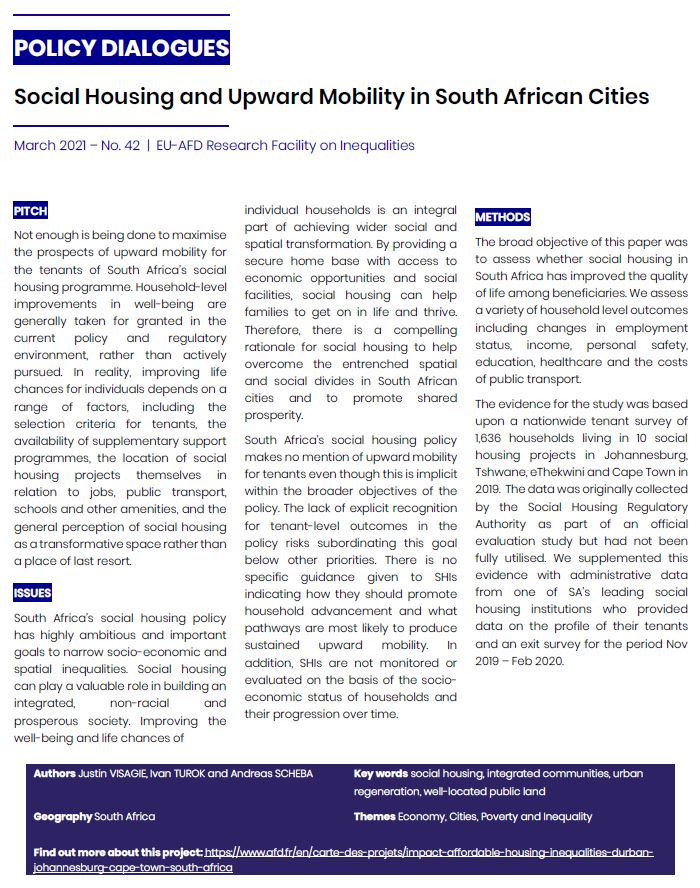Impact of Affordable Housing on Inequalities in Durban, Johannesburg, Cape Town - South Africa
Policy Dialogues

This study forms part of a larger project that dealt with the new forms of affordable and public housing in South African cities. The objective was to determine whether these projects help reduce economic inequalities and encourage social inclusion.
RESULTS
Policy Brief No.41 - Social Housing and Spatial Inequality in South African Cities
Over the last 26 years in democratic South Africa, there has been a ‘spatial drift’ of new social housing projects away from the inner cities towards outer urban areas – a process that runs contrary to stated policy objectives.
This policy brief concluded that a renewed public commitment is required to locate social housing in increasingly dense areas with good access to jobs and amenities. Success depends on several enabling conditions: capable social housing agencies; viable subsidy levels; well-located land; support across government; private sector involvement; and determined implementation.
Policy Brief No. 42 - Social Housing and Upward Mobility in South African Cities
South Africa’s social housing policy makes no mention of upward mobility for tenants even though this is implicit within the broader objectives of the policy.
This policy brief sought to assess whether social housing in South Africa has improved the quality of life among beneficiaries. The authors assessed a variety of household level outcomes including changes in employment status, income, personal safety, education, healthcare and the costs of public transport.
This project is part of the European Facility for a research program on Inequalities in Developing and Emerging Countries, which is coordinated by the AFD. Financed by the Development Cooperation Instrument of the European Union, this facility enables to implement 20 research projects over the 2017-2020 period, in partnership with donors and research centers from the South to the North.



Comments